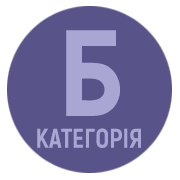ШТУЧНИЙ ІНТЕЛЕКТ У МОВНІЙ ПІДГОТОВЦІ МАЙБУТНІХ ВЧИТЕЛІВ: МОЖЛИВОСТІ ТА ВИКЛИКИ
DOI:
https://doi.org/10.32782/philspu/2025.9.24Ключові слова:
штучний інтелект, мовна підготовка, майбутній учитель, опитування, педагогічне спостереження, курс сучасної української літературної мови, академічна доброчесністьАнотація
У статті окреслено можливості та виклики використання штучного інтелекту в мовній підготовці майбутніх учителів. Акцентовано увагу на багатогранності поняття «штучний інтелект», що охоплює алгоритмічні системи, здатний моделювати психічні функції людини, навчатися, прогнозувати та приймати рішення, відтворювати інтелектуальні процеси. На основі аналізу наукових джерел, проведеного опитування та інтерв'ювання студентів і викладачів Національного університету «Чернігівський колегіум» імені Т.Г. Шевченка та Сумського державного педагогічного університету імені А.С. Макаренка окреслено деякі переваги використання ШІ в освітньому процесі: ШІ оптимізує вивчення мовного матеріалу, розвиває критичне мислення, стимулює творчий підхід до активного засвоєння знань. Педагогічне спостереження за процесом навчання сучасної української літературної мови дало підстави переконатися, що використання інтерактивних форм та вправ у поєднанні з можливостями ШІ створює сприятливе середовище для розвитку в майбутніх учителів-словесників критичного мислення, засвоєння лінгвістичної теорії, розвитку комунікативних, когнітивних та діяльнісних навичок. На основі аналізу наукових джерел, опитування, педагогічного спостереження засвідчено також, що інтегрування ШІ в мовну підготовку майбутніх учителів супроводжується низкою викликів: дотримання принципів академічної доброчесності, забезпечення конфіденційності та захистом даних студентів, алгоритмічної упередженості та обмеження емоційного інтелекту. Означено важливість балансу між використанням цифрових інструментів і традиційними педагогічними методами, живого спілкування й емоційної взаємодії викладача та студента як невід'ємних компонентів освітнього процесу.
Посилання
Словник Collins Ukraine. (n.d.). URL: CheckItOut. https://checkitout.com.ua/ua/p351833311-slovnik-collins-ukraine.html. (дата звернення: 03.02.25)
Preparing for the future of artificial intelligence / Executive Office of the President National Science and Technology Council Committee on Technology. 2016. https://obamawhitehouse.archives.gov/sites/default/files/whitehouse_files/microsites/ostp/NSTC/preparing_for_the_future_of_ai.pdf (дата звернення 05.02.25)
Turing A. M. Computing machinery and intelligence. Mind. 1950. № 59. P. 433–460.
Kurzweil Ray. How to create a mind: The Secret of Human Thought Revealed URL: https://habr.com/ru/arti- cles/159715/ (дата звернення 10.02.25)
Штучний інтелект у майбутньому зможе самостійно визначати долю людства. URL: https://surl.li/fyhcya (дата звернення 10.02.25)
Artificial Intelligence: A Modern Approach. Stuart J. Russell and Peter Norvig. 2020 (4th Ed. 1136). URL: http://lib. ysu.am/disciplines_bk/efdd4d1d4c2087fe1cbe03d9ced67f34.pdf (дата звернення 10.02.25)
Концепція розвитку штучного інтелекту в Україні. 2020. URL: https://zakon.rada.gov.ua/laws/show/1556-2020- %D1%80#n8. (дата звернення 12.02.25)
Стратегія розвитку штучного інтелекту в Україні. монографія за заг. ред. А. І. Шевченка. Київ. ІПШІ. 2023. 305 с. URL: https://jai.in.ua/archive/2023/ai_mono.pdf. (дата звернення 12.02.25)
Качур І. І. Штучний інтелект: новий рівень у вивченні іноземних мов. Актуальні проблеми мовно-літературної освіти в середній та вищій школах. Матеріали ІV Всеукраїнської науково-практичної конференції (27 квітня 2023 р.) / Укладачі: А. Ю. Вітченко, А. О. Мельник. Київ : Вид-во УДУ імені Михайла Драгоманова, 2023. С.71-74. URL: https://elibrary.kubg.edu.ua/id/eprint/47655/1/I_Kachur_Konf_APMLO_FRGF.pdf (дата звернення 15.02.25)
Шаров Т.М., Землянська А.В. Дистанційне навчання в умовах війни: використання штучного інтелекту в освіті. Вісник науки та освіти. Серія «Педагогіка». 2024. №4 (22). URL: http://www.tsatu.edu.ua/shn/wp-content/uploads/sites/59/11253-tekst-statti-11312-1-10-20240512-2.pdf (дата звернення 15.02.25)
Коновальчук Н.О. Проблеми академічної доброчесності в умовах розвитку технологій штучного інтелекту. Progressive Research in the Modern World : Proceedings of X International Scientific and Practical Conference (Boston USA, 22‒24 June, 2023). Boston, 2023. С. 234‒240.
Гром М.О. Застосування штучного інтелекту під час написання наукових робіт. Академічна доброчесність: правові проблеми : матеріали Всеукр. круглого столу (Одеса, 26 трав. 2023). Одеса, 2023. С. 37‒41.







